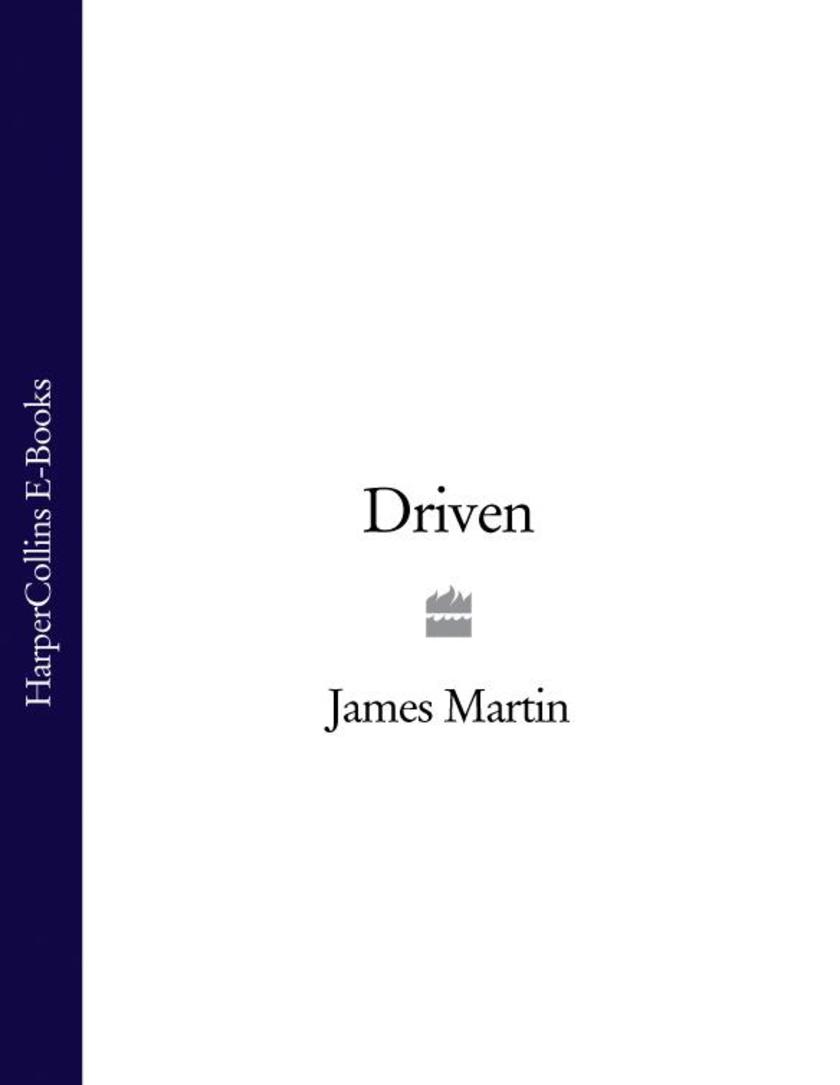
Driven
¥63.18
Whether skateboarding across the kitchen as a child, or taking part in the world's most prestigious vintage road race, TV chef James Martin has never been one to sit still. In this entertaining narrative he reveals how his two passions – cooking and cars – have fuelled his hopes, dreams and successes and made him the household name he is today. James talks with passion, energy and candid humour about his childhood, early ambitions, becoming a successful chef and wowing audiences with his foxtrot on Strictly Come Dancing. His story is punctuated with tales of remarkable cars, from his first toy Ferrari to his vintage Maserati, each one representing a personal milestone and bringing with it charming stories and amusing anecdotes. James' cars give him the perfect excuse to delve into his life, revealing frank and fascinating details - from racing through the fields on his father's tractor and teenage fumblings in the back seat, to hurtling round a track with James Bond actor, Daniel Craig. With James' career reaching new heights, and his collection of classic cars continuing to grow, Driven tells how his two lifelong obsessions have shaped the life of this relentlessly ambitious man.
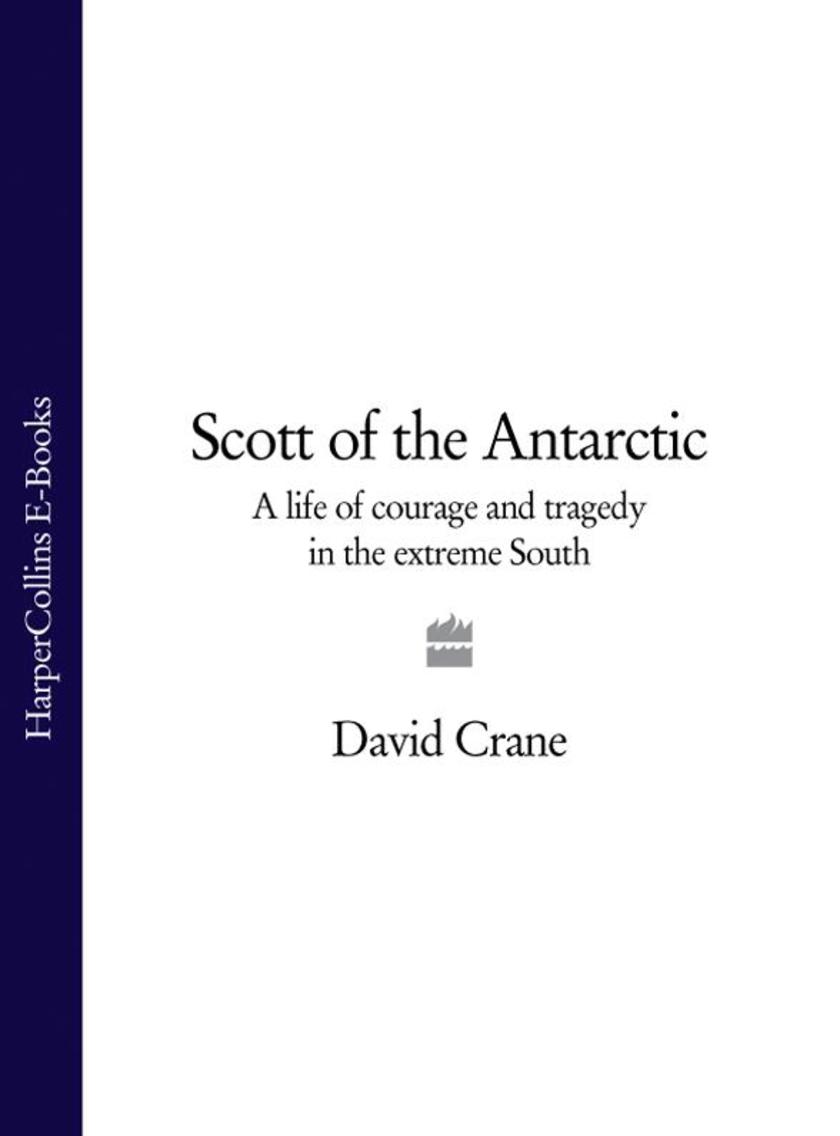
Scott of the Antarctic: A Life of Courage and Tragedy in the Extreme South
¥76.91
David Crane has given us a magisterial portrait of one of Britain’s greatest heroes and explorers, acclaimed as the ‘masterpiece’ on the subject. Reissued for the 100th anniversary of Scott’s doomed expedition. ‘It seems a pity, but I do not think I can write more…For God’s sake look after our people.’ These were the final words written in Scott’s diary on 29 March 1912, as he lay dying of exhaustion, starvation and extreme cold, in his tent on his return journey from the South Pole. Since then he has been the subject of many books. Yet in all the pages that have been written about him, the personality behind the legend has been forgotten or distorted beyond all recognition. David Crane’s magisterial biography redresses this completely. By reassessing Scott’s life and his substantial scientific achievements, Crane is able to provide a fresh and exciting perspective on both the Discovery expedition of 1901-4 and the Terra Nova expedition of 1910-12. The courage and tragedy of Scott’s last journey are only one part of the process, for the scientific enquiry that led up to it transformed the whole nature and ambition of Antarctic exploration. Written with the full support of Scott’s surviving relatives, and with access to the voluminous diaries and records of key participants, this definitive biography sets out to reconcile the very private struggles of the man with the very public life of extremes that he led.

The Devious Book for Cats: Cats have nine lives. Shouldn’t they be lived to the
¥56.11
Cats once were proud, shrewd, independent animals who lived life on our own terms. But then came a life of domestication, comfort and free health care. And now cats are in danger of losing our sense of adventure completely. Fluffy and Bonkers say it's time to fight back and regain control of your rightful place as ruler of the roost once again. Cats once ruled the alleys, galleys and the valleys. Rodents trembled in fear. Birds steered clear. Cats took chances. Some lived fast and died young… We were on the prowl. But then came a life of domestication that was simply too good to pass up. Humans gave us everything we desired, from ear massages and shelter from the rain to cuddle sessions and free health care. In return, they were permitted to bask in the majesty of our presence. It seemed like a fair trade. Or was it? Has domesticity really been good for cats? What has become of our sense of adventure, our sense of independence? Did you know that because of boredom and indolence, the average feline today uses up a mere 2-3 of its 9 lives? Fluffy and Bonkers think its time to get out of the comfortable back seat of life and regain control of your destiny. They created this manual to teach discerning cats how to wake up a human when they want to get fed, how to stare like a pro, how to carry yourself in a catfight and - most importantly - how to get away with practically anything. With The Devious Book for Cats you can return to the noble creature you once were and assume your rightful place as the ruler of your household once again.

Amedeo: The True Story of an Italian’s War in Abyssinia
¥80.25
War-time love story set in Abyssinia, Eritrea and the Yemen 1935-1945. Amedeo Guillet is still alive and living in County Meath, Ireland. Khadija is lost. This is the story of Amedeo Guillet – an Italian calvary officer who was sent out to Abyssinia as part of Mussolini’s army to establish and command a troupe of 2,000 Spahis – or Arabic calvary. He met and fell in love with Khadija – a beautiful Ethiopian Muslim. Together they held up the British lorries heaving up the mountain road to Asmara and blew up the important Ponte Aosta. Eventually captured, Amedeo went on the run disguised as an Arab, eventually making it to Yemen, only to be thrown in jail. This is a rare view of the Second World War from an Italian perpective; particularly valuable are the chapters that tell the story of Italian resistance to the Nazis, and their subsequent withdrawal from Italy in 1943. There are few stories more cinemagraphic than this – Fascist Italy, his early years in Ethiopia commanding the Cossack-like Spahis, the brutal Abyssinian war waged by the Duce, Italian and British colonial rivalry; Amedeo led the last ever cavalry charge the British army faced (Eritrea 1941 – they were massacred by tanks and sub-machine guns), defeat and guerrilla warfare against the British; then flight, disguised as an Arab, imprisonment in the Yemen and a great love lost as he leaves his beloved Khadija behind to face her future alone and returns to Italy, to his fiancée and a career as a distinguished Italian diplomat and Arabist. Amedeo is still alive and living in County Meath, Ireland. Sebastian O’Kelly is a journalist for the Mail and Telegraph and has Amedeo’s full co-operation in writing this book. This is a very valuable and absolutely stunning story, beautifully told by O’Kelly.

Best Loved Hymns and Readings
¥100.06
An indispensable combination of 200 best loved hymns, poems and readings for every occasion, and ideal for personal reflection. Complete with a brief introduction to each piece and its author, this book is a wonderful personal reference and devotional guide. From Away in a Manger to God Save the Queen, and the famous Bible passage on love, 1 Corinthians 13, to Tennyson’s Crossing the Bar, it has passages suitable for every occasion, and has all you need to plan a baptism, a wedding or, should the need arise, a funeral.

Bigger than Hitler – Better than Christ
¥73.58
In this electrifying autobiography, Rik stands naked in front of his vast legions of fans and disciples and invites them to take communion with the blood he has spilled for them during his thirty year war on show business. He invented alternative comedy with The Young Ones, he brought down the Thatcher administration with The New Statesman and he changed the face of global culture with his masterpiece Bottom. Not only was his number one single ‘Living Doll’ the saviour of rock 'n' roll but he also rescued the British film industry with the vast revenues created by his legendary movie Drop Dead Fred. In 1998, he survived an assassination attempt and spent five days in a coma before he literally came back from the dead. Having completed countless phenomenal feature films, TV series, live extravaganzas and radio voice-overs since then, Rik Mayall is now poised on the brink of a whole new epoch-shattering revolution. For the first time ever, Rik reveals in print the deep inner truth behind his gargantuan ascent to the pinnacle of international light entertainment – the mental hospitals he has broken out of, the television executives he has assaulted, the drugs he has definitely not taken, the charities he has bankrupted, the countless pregnancies he has engendered, and so much more.

My Life As a Medium
¥73.58
The inside story of the ‘reluctant medium’, finally available in a mass-market A-format edition Betty Shine was originally an opera singer, but studied all forms of alternative healing, becoming a vitamin and mineral therapist. Guided by spirit voices from the age of two, she became a world-famous medium. This is the story of how she became the best known medium and healer in the UK. Through her books, tapes and absent healing service, she is in touch with thousands of people worldwide. The hardback publication of her book produced a tremendous response from both the media and the general public and this A-format edition will bring her story to an even wider audience.

Billy Connolly
¥68.57
The inside story of the one of the most successful British stand-up comedians, as told by the person best qualified to reveal all about the man behind the comic, his wife of over 20 years – Pamela Stephenson. Once in a lifetime, there strides upon the stage someone who can truly be called a legend. Such a person is the inimitable, timeless genius who is Billy Connolly. His effortlessly wicked whimsy has entranced, enthralled – and split the sides of – thousands upon thousands of adoring audiences. And when he isn't doing that…he's turning in award-winning performances on film and television. He's the man who needs no introduction, and yet he is the ultimate enigma. From a troubled and desperately poor childhood in the docklands of Glasgow he is now the intimate of household names the world over. How did this happen, who is the real Billy Connolly? Only one person can answer that question: his wife, Pamela Stephenson. Pamela’s writing combines the very personal with a frank objectivity that makes for a compelling, moving and hugely entertaining biography. This is the real Billy Connolly. This genre-defining book is now released as an ebook for a new generation of comedy fans, with a new Foreword from the author. Pamela’s vision of Billy is as true now as it ever was – as groundbreaking, as moving and as laugh-out-loud funny – and here she brings the book fully into its context, as one of the most influential biographies ever written.
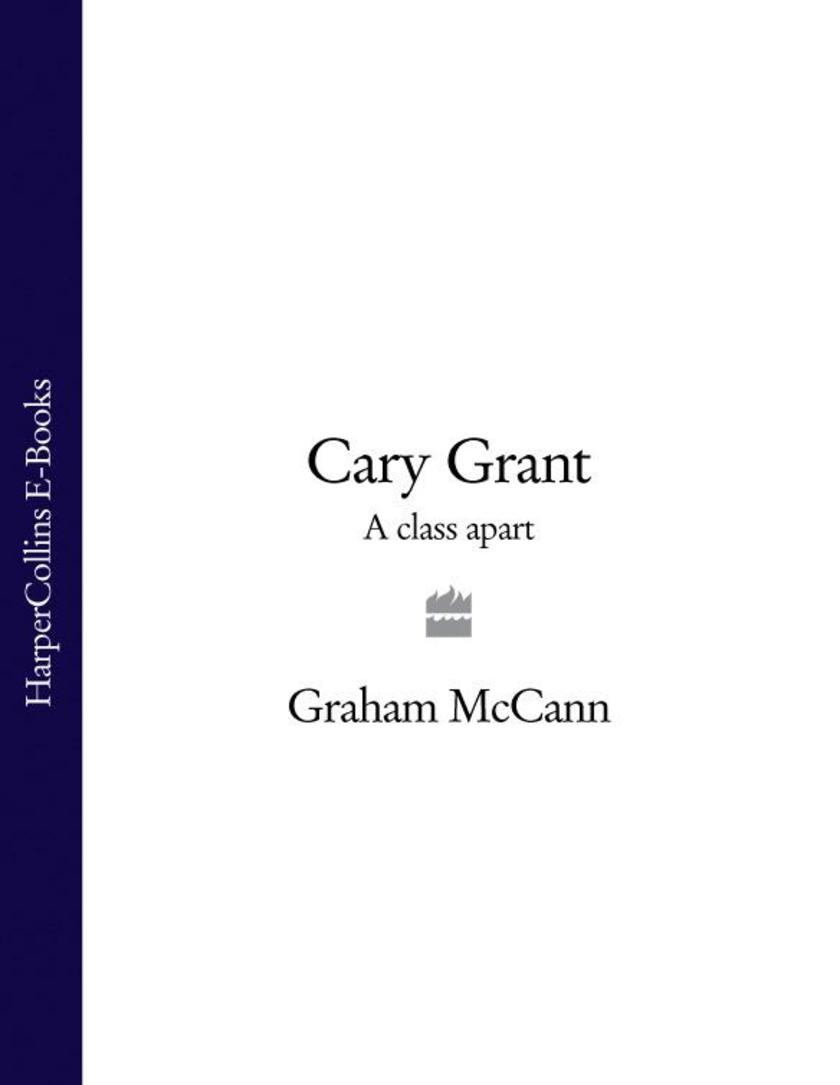
Cary Grant: A Class Apart (Text Only)
¥65.24
The ultimate biography of this ever-popular star and icon, from a young Cambridge don who has already made his name with a much praised biography of Marilyn Monroe. Cary Grant made men seem like a good idea. Tall, dark and handsome with a rare gift for light comedy, he played a leading man who liked to be led, a man of the world who was a man of the people. Cary Grant was Hollywood’s quintessential democratic gentleman. Born in England as Archie Leach, made famous in America as Cary Grant, he was a star for more than 30 years, in more than 70 movies, his popularity still intact when he brought his career to a close. He was never replaced: nobody else talked like that, looked like that, behaved like that. He was a class apart. Cary Grant never explained how he came to play ‘Cary Grant’ so well. ‘Nobody is every truthful about his own life,’ he said. ‘There are always ambiguities.’ This book explores the ambiguities in the life and work of Cary Grant: a working class Englishman who portrayed a well-bred American; the playful entertainer who became a powerful businessman; the intimate stranger who was often the seduced male. Thorough and meticulously researched, this book is a dazzling and entertaining account of Cary Grant’s broad and enduring appeal.
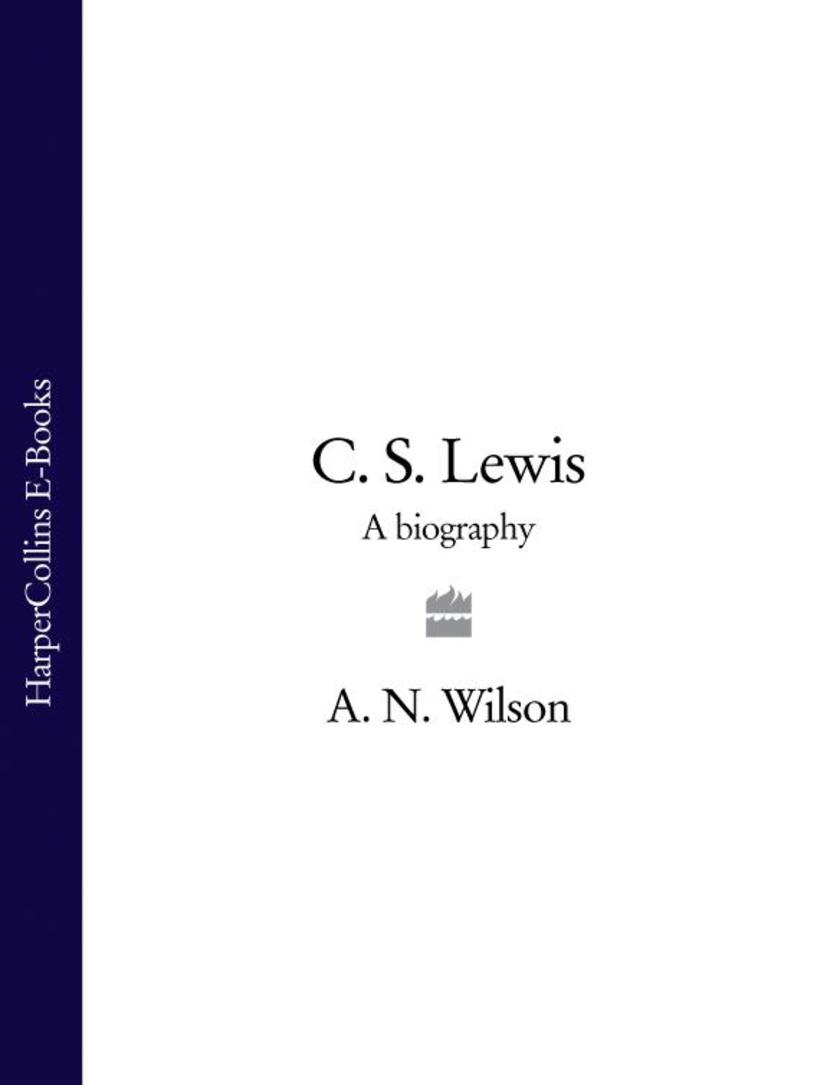
C. S. Lewis: A Biography
¥82.01
This acclaimed biography charts the progress of the brilliant, prolific writer, C. S. Lewis. C. S. Lewis was a deeply complex man, capable of inspiring both great devotion and great hostility. This acclaimed biography charts the progress of the clever child from the ‘Little End Room’ of his Ulster childhood and adult life, exploring Lewis’s unwilling conversion to Christianity, the genesis of his writing, and the web of his relationships.

The Perfume Lover: A Personal Story of Scent
¥66.22
‘Why couldn’t I be a perfumer’s muse? I’ve come such a long way in the realm of scent. In fact, I was never really meant to poke my nose into it …’ The Perfume Lover by Denyse Beaulieu is an intimate journey into the mystery of scent. What if the most beautiful night in your life inspired a fragrance? Denyse Beaulieu is a respected fragrance writer; it is her world, her love, her life. When she was growing up, perfume was forbidden in her house, spurring a childhood curiosity that went on to become an intellectual and sensual passion. It is this passion she pursued all the way to Paris, where she now lives, and entered the secretive world of the perfume industry. But little did she know that it would lead her to achieve a fragrance lover’s wildest dream … When Denyse tells a famous perfumer of a sensual night spent in Seville under an orange tree in full blossom, wrapped in the arms of a beautiful young man, the story stirs his imagination and together they create a scent that captures the essence of that night. This is the story of that perfume. As the unique creative collaboration unfolds, the perfume-in-progress conjures intimate memories, leading Beaulieu to make sense of her life through scents. Throughout, she weaves the evocative history of perfumery into her personal journey, in an intensely passionate voice: the masters and the masterpieces; the myths and the myth-busting, down to the molecular mysteries that weld our flesh to flowers… The Perfume Lover is an unprecedented account of the creative process that goes into composing a fragrance, and a uniquely candid insider’s view into the world and history of fragrance. Your world will never smell the same.
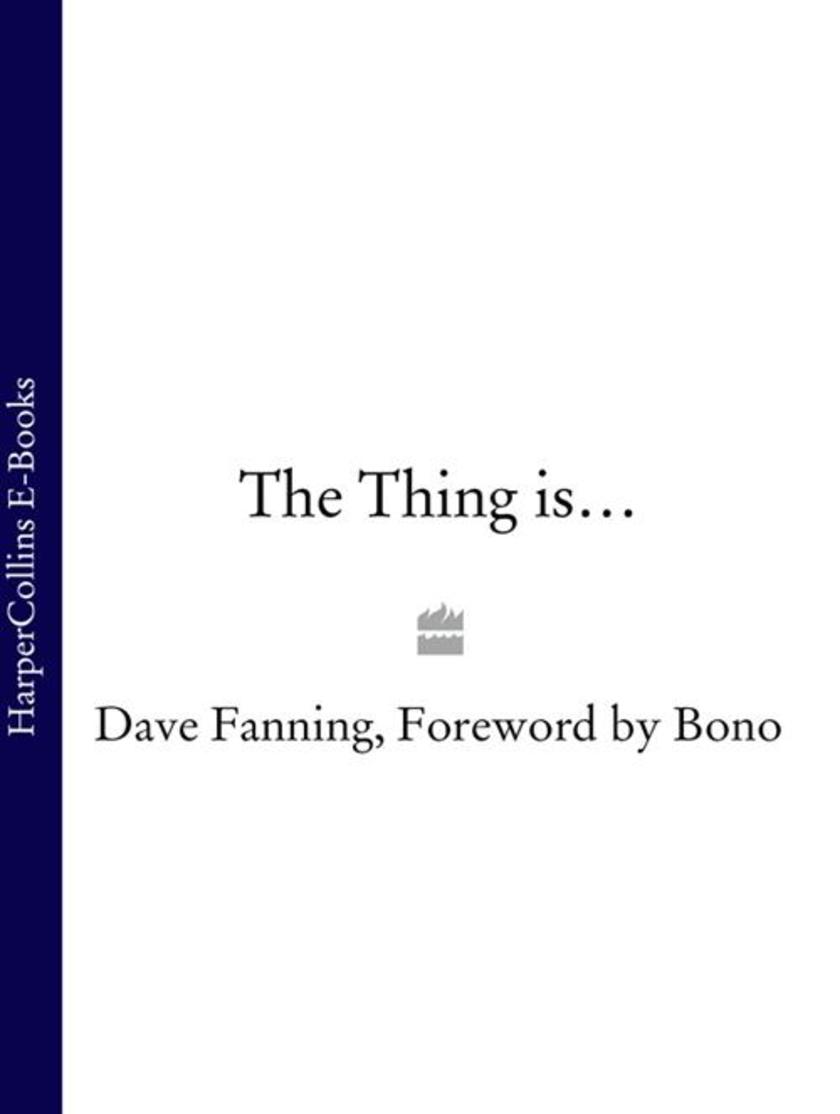
The Thing is…
¥61.51
Described as the Irish John Peel, Dave Fanning has been a major player in the Irish and global music scene for over 30 years. In this compelling memoir, RTE Radio 2 DJ Dave Fanning will give the behind-the-scenes story of all the international musicians he has met, including The Rolling Stones, The Beatles, David Bowie, The Who and many, many more. Dave's story starts in the 60s, when he discovered his love for Bob Dylan, Joni Mitchell, Leonard Cohen and of course, The Beatles through the family sub*ion to the NME. This was to be his first glimpse of a world he would soon become an important part of. Graduating from pirate radio and a stint as Editor of Scene magazine, Dave joined RTE radio 2 when it launched in 1973, and quickly became the voice of a generation. Billboard magazine hailed him as the man solely responsible for the growth of Ireland's music industry. Renowned for supporting young, new Irish talent, Dave Fanning will detail the unique story of his role in the launch of U2 and his ongoing friendship with the band, delving into their humble beginnings and rise to fame. Including never-before-seen photographs and images from Dave's huge personal collection, this is an absolute must-have for any music fan and will be a significant contribution to the history of music.

The Puppy Listener
¥73.58
An indispensible guide to raising your new puppy from the author of The Dog Listener. From teething to training, this book follows the development of your puppy from new pet to best friend. In The Puppy Listener Jan Fennell presents a simple-to-follow yet detailed handbook for puppy owners. Whether this is your first pup or you are a seasoned dog-owner, the hints and tips in this concise guide are valuable and well informed. This handy guide follows the life of your puppy from weaning to walking. Jan Fennell covers every aspect of caring for your new best friend – from introducing a puppy into its new home and handling it in public, to dealing with behavioural problems. With detailed sections on everything from exercise to diet, there are problem-solving guides dealing with worries such as biting or anxiety. Once again Jan illustrates her points with entertaining and inspiring real-life cases from her own work with damaged and delinquent dogs. Her love of animals is contagious and she inspires owners to persevere with their pups and show them who is boss. The book contains photographs and plate sections which accompany the text.
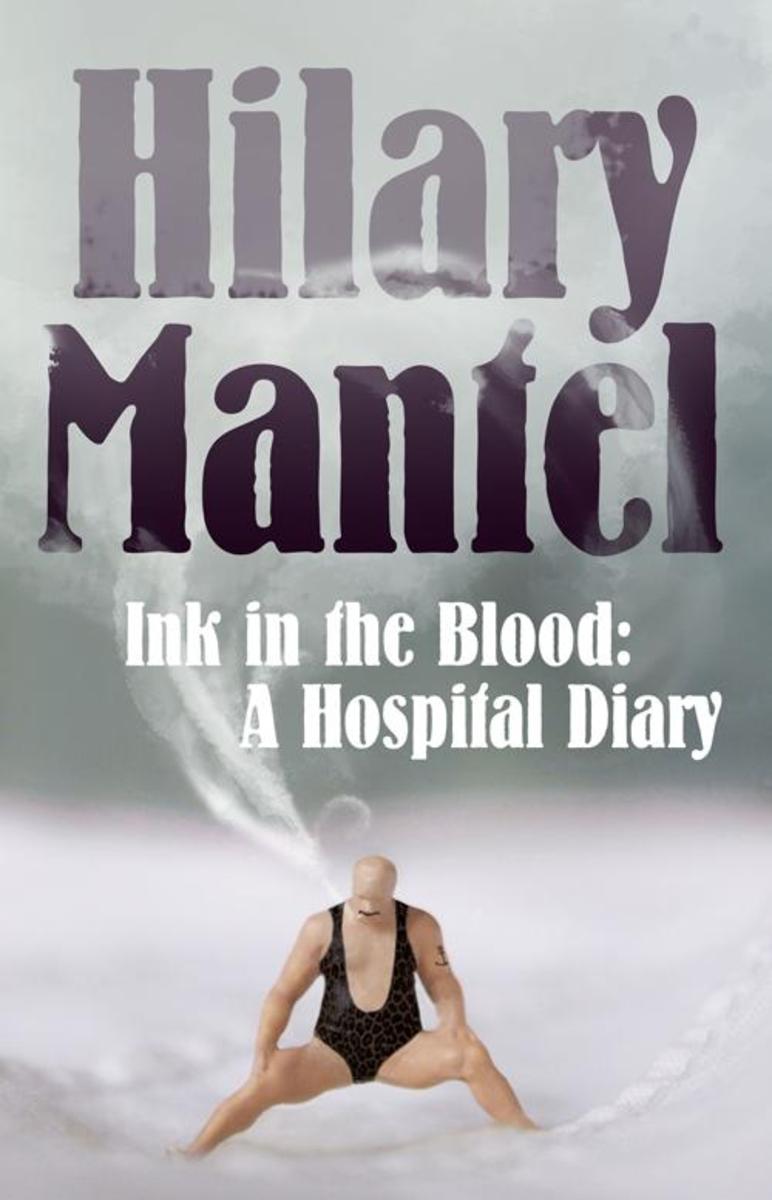
Ink in the Blood: A Hospital Diary
¥19.13
Just after ‘Bring Up the Bodies’ author Hilary Mantel won the Man Booker for ‘Wolf Hall’, she fell gravely ill. This is her remarkable hospital diary. Originally published in the London Review of Books, this diary by the acclaimed author Hilary Mantel explores in forensic detail her loss of dignity, her determination, the concentration of the senses into an animalistic struggle to get through, and the attendant hallucinations she was plagued by during her stay in hospital. With her health now improved, and the acknowledgement of the Man Booker prize-winning follow-up to ‘Wolf Hall’, ‘Bring Up the Bodies’ as one of our greatest works of fiction, ‘Ink in the Blood’ remains a significant testament to the traumas of illness, and one of the most incredible and haunting essays published in a very long time.

Madness: A Bipolar Life (Text Only)
¥72.30
A searing, unflinching and deeply moving account of Marya Hornbacher’s personal experience of living with bipolar disorder. From the age of six, Marya Hornbacher knew that something was terribly wrong with her, manifesting itself in anorexia and bulimia which she documented in her bestselling memoir ‘Wasted’. But it was only eighteen years later that she learned the true underlying reason for her distress: bipolar disorder. In this new, equally raw and frank account, Marya Hornbacher tells the story of her ongoing battle with this most pervasive and devastating of mental illnesses; how, as she puts it, ‘it crept over me like a vine, sending out tentative shoots in my childhood, taking deeper root in my adolescence, growing stronger in my early adulthood, eventually covering my body and face until I was unrecognizable, trapped, immobilized’. She recounts the soaring highs and obliterating lows of her condition; the savage moodswings and impossible strains it placed on her relationships; the physical danger it has occasionally put her in; the endless cycle of illness and recovery. She also tackles the paradoxical aspects of bipolar disorder – how it has been the drive behind some of her most creative work – and the reality of a life lived in limbo, ‘caught between the world of the mad and the world of the sane’. Yet for all the torment it documents, this is a book about survival, about living day to day with bipolar disorder – the constant round of therapy and medication – and managing it. As well as her own highly personal story, the book includes interviews with family, spouses and friends of sufferers, the people who help their loved ones carry on. Visceral and inspiring, lyrical and sometimes even funny, ‘Madness’ will take its place alongside other classics of the genre such as ‘An Unquiet Mind’ and ‘Girl, Interrupted’.

The Necklace: A true story of 13 women, 1 diamond necklace and a fabulous idea
¥54.25
One day a woman of average means waltzes by a jewellery shop window and spots a ?20,000 diamond necklace. She can't get it out of her head. Eventually she gets the idea of sharing it with friends, persuading them to chip in a grand each to buy the necklace. This is the true story of 13 ordinary women, and one extraordinary adventure. The Necklace is the amazing true story of thirteen women who didn't want to give up on their dreams. They clubbed together to buy a gorgeous diamond necklace, agreeing that each of them would have it for four weeks at a time. They would meet every month to find out what the necklace (now dubbed 'Jewelia') had been up to. The club had some rules: if someone went to Paris, they got the necklace. At least once, everyone had to wear the necklace whilst making love. After two years, the necklace had been loaned out to nieces, grandmas, friends and granddaughters. It had been worn by brides and colleagues and sisters and friends. And when it was their turn for the necklace the women of Jewelia wore it for both the daily routines and special events of their lives, to teach school, to work in the farmer's market, to go fishing and skydiving. It started something. The Necklace is the story of how an object of desire became a catalyst for connection, friendship and more. It's like Calendar Girls, only maybe a bit more glamorous, glitzy and sparkling.
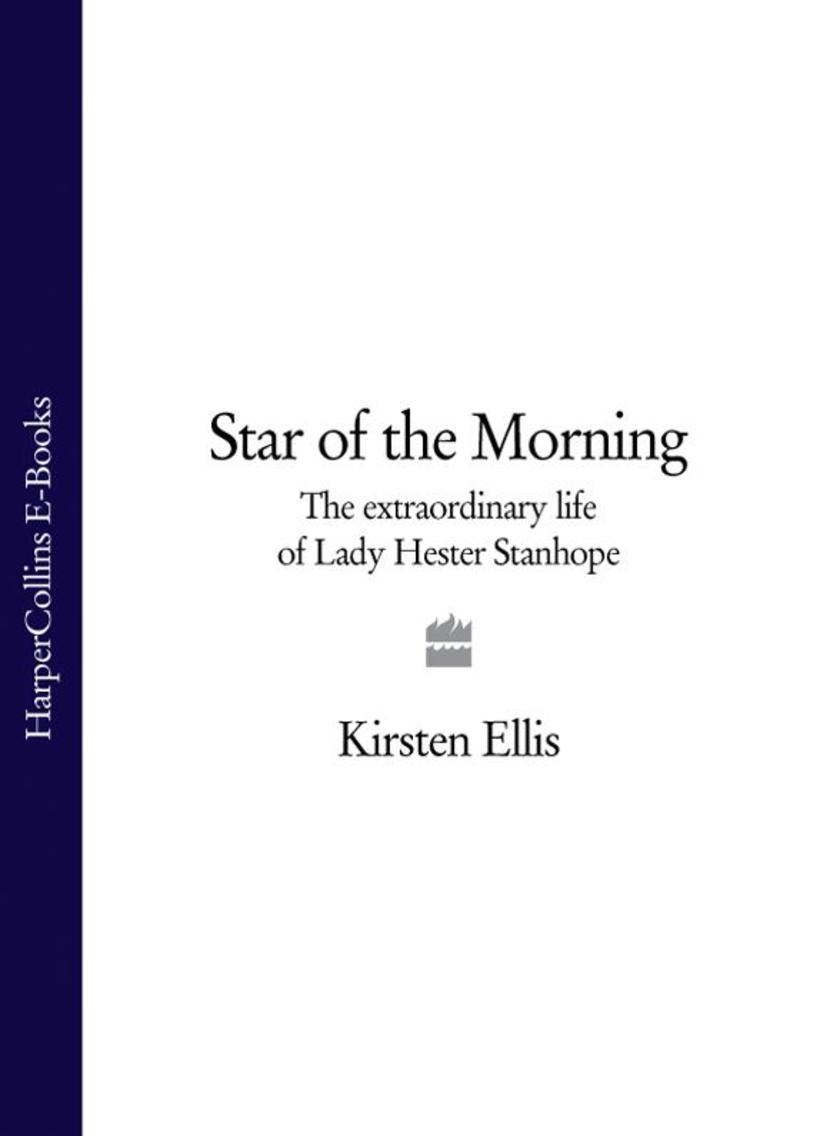
Star of the Morning: The Extraordinary Life of Lady Hester Stanhope (Text Only)
¥192.67
The dramatic story of Lady Hester Stanhope – a wilful beauty turned bohemian adventurer – who left England as a young woman, unashamedly enjoyed a string of lovers and established her own exotic fiefdom in the Lebanese mountains where she died in 1839. Ambitious, daring and uncompromising, Lady Hester Stanhope was never cut out for a conventional life. Born into an illustrious political dynasty, she played society hostess for her uncle, William Pitt the Younger. After his death, she struck out for unchartered territory, setting sail with her lover for the Mediterranean and Constantinople – turning her back on England, as events would transpire, forever. It was in the Middle East, however, that she found her destiny. As the greatest female traveller of her age, she was the first western woman to cross the Syrian desert, where she was hailed by the Bedouin as their ‘Star of the Morning’. From her labyrinthine fortress in the mountains of Lebanon, where she established what amounted to her own fiefdom, she exerted a canny influence over the region's devious politics. Hers was a life of adventure and intrigue – yet in the years following her death her remarkable story has been largely dismissed, reworked by the Victorians into a cautionary tale for young women with wayward tendencies. This captivating biography, drawing on fresh research from three continents, resurrects Hester as the complex, courageous and fearless woman she was, bringing to life her hidden loves, friendships and ambitions. More than a mere traveller, here was a woman whose aspirations led her straight to the heart of the shadowy race for influence between the great powers of the nineteenth century – a world of shifting alliances, double agents, romance, intrigue and murder. Above all, Lady Hester Stanhope was a woman driven by her desire to make a mark on the world, whose search for love and spiritual meaning in a war-torn Middle East provide an illuminating and moving parallel for our time.
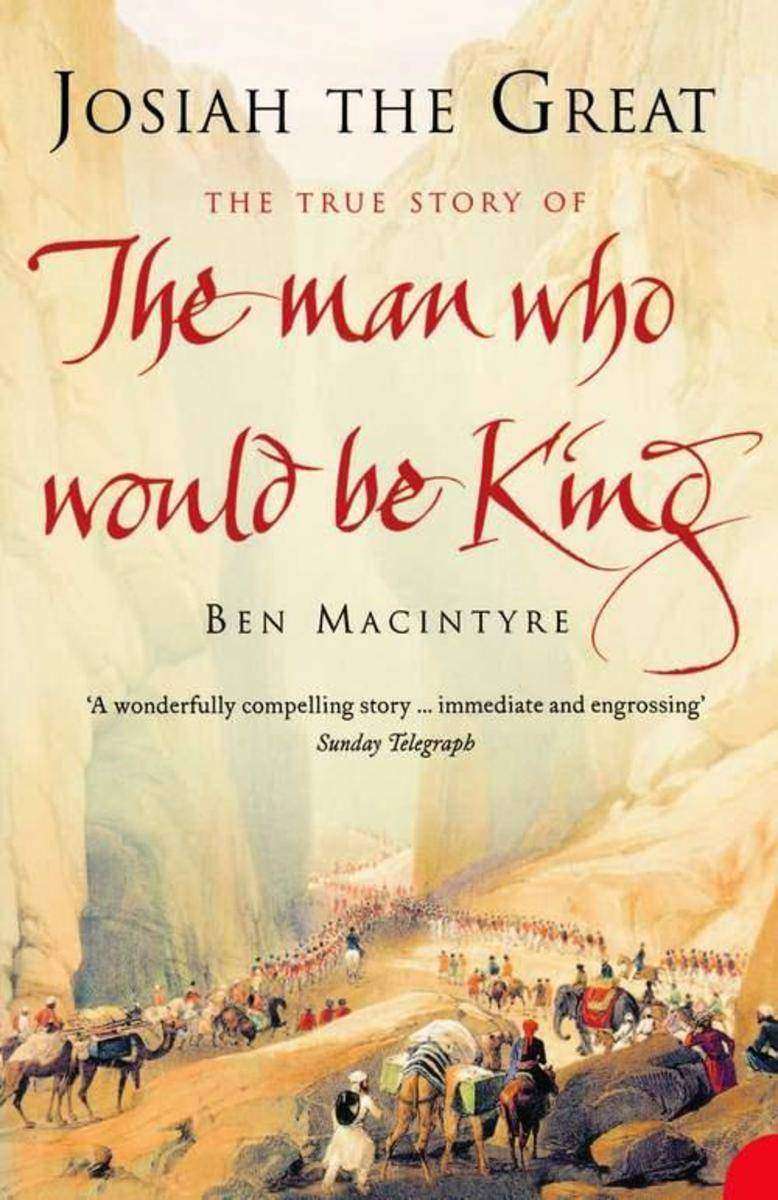
Josiah the Great: The True Story of The Man Who Would Be King
¥68.67
The amazing tale of a resourceful and unscrupulous early-19th-century American adventurer who forges his own kingdom in the wilds of Afghanistan. In the year 1838, a young adventurer, surrounded by his native troops and mounted on an elephant, raised the American flag on the summit of the Hindu Kush and declared himself Prince of Ghor, the heir to Alexander the Great. Josiah Harlan, the first American to set foot in Afghanistan, would become the model for Kipling’s ‘The Man Who Would be King’, but the true story of his life is stranger than fiction. A soldier, spy, doctor, naturalist and writer, Harlan set off into the wilds of Central Asia after a failed love affair in 1820. Following a brief stint as a surgeon in the East India Company’s army, he joined the court of the deposed Afghan monarch Shah Shujah, and then slipped into Kabul disguised as a Muslim priest to foment rebellion. For the next two decades he would play a pivotal role in the bloody politics of the region. Using a trove of newly discovered documents, including Harlan’s long-lost journals, Ben Macintyre has followed Harlan’s footsteps to uncover an astonishing, untold chapter in the history of the Great Game. If you enjoyed William Dalrymple’s ‘Return of a King’, ‘Josiah the Great’ should be on your reading list.

Secretariat
¥45.62
The remarkable true story of ‘Big Red,’ one of America’s finest racehorses. When her beloved Meadow Stables is faced with closure following her father’s illness, housewife and mother Penny Chenery agrees to take over. Despite her lack of horse-racing knowledge she calls in assistance from trainer Lucien Laurin and a host of successful jockeys. Pitted against the Phipps’ racing dynasty, Penny takes the decision to breed her mare Somethingroyal to the Phipps’ Bold Ruler, the nation’s favourite stallion. With the toss of a coin it is agreed that one family will take Somethingroyal’s first foal with the losing stable taking the colt out of Hasty Matelda and Somethingroyal’s second foal. Penny loses the toss, but the wait for the unborn foal proves fortuitous when a bright red chestnut colt is born, Secretariat. Nicknamed “Big Red,” with Laurin’s guidance, Penny manages to navigate the male-dominated business of horse racing, ultimately fostering the first Triple Crown winner in 25 years and what may be the greatest racehorse of all time. Now, more than 30 years after its initial publication, the story of "Big Red" continues to be a classic. Secretariat is the tale of a great racehorse but also a testimony to the dedication of Penny Chenery. Following her triumph with Secretariat she was elected as the first female member of The Jockey Club, changing the face of American horse racing forever.

Sentimental Murder: Love and Madness in the Eighteenth Century (Text Only)
¥82.01
On an April evening in 1779, a woman is shot on the steps of Covent Garden. Her murderer is a young soldier and Church of England minister; her lover, the Earl of Sandwich, one of the most powerful politicians of the day. This compelling account of murder, love and intrigue brings Georgian London to life in a spellbinding historical masterpiece. On an April evening in 1779, Martha Ray, mistress of the Earl of Sandwich, was shot on the steps of Covent Garden by James Hackman, a young soldier and minister of the Church of England. She died instantly, leaving behind a grief-stricken lover and five small children. Hackman, after trying to kill himself, was arrested, tried and hanged at Tyburn ten days later. The story was to become one of the scandals of the age. It seemed an open-and-shut case, but why had Hackman killed Ray? He claimed he suffered from ‘love’s madness’ but his motives remained obscure. And as Martha Ray shared the bed of one of the most powerful and unpopular politicians of the day (and one of Georgian London's greatest libertines), the city buzzed with the story, as every hack journalist sharpened his pen. John Brewer has written an account of this violent murder that is as thrilling and compelling as the best crime novel. Atmospheric, beautifully written, and alive with the characters and bustle of 18th-century London, the book examines in minute detail the events of a few crucial moments and gives an unforgettable account of the relationships between the three protagonists and their different places within society. However, the interest in Martha's murder did not end with the Georgians, and ‘Sentimental Murder ‘ranges over two centuries, populated by journalists, biographers and historians who tried to make sense of the killing. And so it becomes an intriguing exploration of the relations between history and fiction, storytelling and fact, past and present. John Brewer has transformed a tragic tale of murder into an historical masterpiece.

Blood Sisters: Part 1 of 3: Can a pledge made for life endure beyond death?
¥23.45
It’s 1983 and best friends Vicky and Lucy swear that they will always be there for each other, that they’ll never let anyone come between them. But fast forward 4 years and life on the Canterbury Estate has gotten very messy.




 购物车
购物车 个人中心
个人中心



